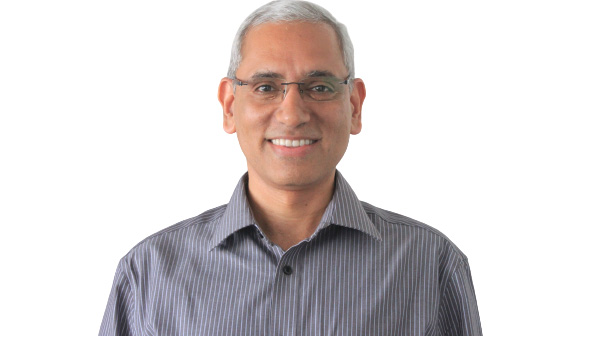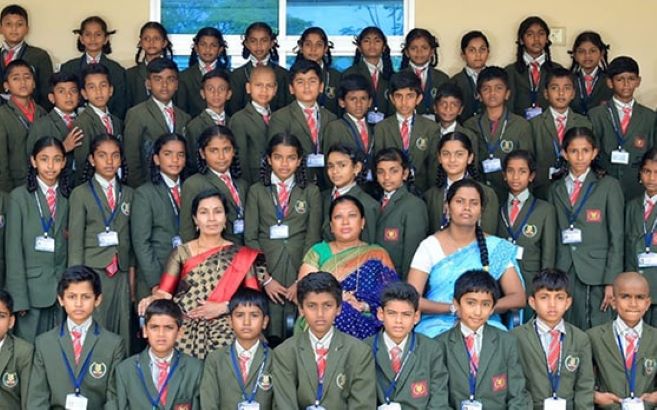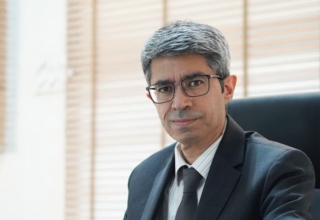
Varthana’s remarkable journey of the last 11 years is seeded with an interesting beginning where Steve Hardgrave from US, also a Co-Founder, sparked this idea in the first place only to get fully involved and emigrate to India. Autar Nehru spoke to Brajesh Mishra to understand the company’s work and working.
Brajesh Mishra, an alumnus of Birla Vishwakarma Mahavidyalaya and The Maharaja Sayajirao University of Baroda, is the Co-founder and Executive Director of Varthana Finance Pvt Ltd (etsb 2013), a Bangalore-based NBFC, providing school and education loans. With a portfolio of Rs 1300 Cr, Varthana is servicing small and medium schools (affordable range of schools) having already supported 10,000+ schools in 16 states across India. It is also providing student loans for undergrad and certificate courses within India.
How did Steve (Hardgrave) and you cross paths and how that initial introduction translated into doing business together?
I was a banker at ICICI Bank as part of the Rural, Microbanking and Agri-business group, Mumbai. We got to meet a lot of people from around the world who were doing some wonderful work in the rural and agri space. It was through one of these chance meetings that I got introduced to Steve and his other team members from Gray Ghost Ventures who were planning to start a school finance company in India. I was invited for discussions to Hyderabad where I got to meet a couple of school owners and before I knew it, I had signed up to be a part of (Indian School Finance Company ) the start-up! The idea was so compelling and the team members so driven about the work that there was no question of refusing the offer. And so, we packed our bags and moved to Hyderabad in September of 2008.
That’s interesting. Then why did both of you move to set up Varthana?
The stint at ISFC was very fulfilling. We learnt a lot from the initial mistakes and had already turned profitable. There was demand from schools all over the country and we needed more funds to satisfy that need. While we were able to raise some debt in the domestic market, the real need was that of equity infusion to take the business to the next level. However, there were challenges pertaining to cap table dilution that indicated that additional equity might take much longer. We had seen the power of the model and the impact we were making at the schools so by the end of 2011 we had decided that the best course of action would be to attempt doing this on our own. We had nothing against ISFC and to ensure that we don’t cannibalize the existing customer base, we decided to shift to Bangalore to start our new company. Meanwhile, Steve also shifted to India with his family and after chasing investors for about a year, we raised Rs 7 Cr, partly through friends and family and made our first loan in January 2013.
Why did you choose schools, and that too small or medium private schools for your business?
I think private schools have become aspirational for the common man and there is a revolution (that still continues) of budget schools attracting children almost everywhere. Many edupreneurs as a result in the form of school owners have also emerged. Now what happens, big private schools are well capitalized and have trained management, so they can also get finances from banks. But that is not the case with medium and small schools, which are primarily family owned trusts or run through societies. Their financial needs in terms of additional classrooms, equipment, technology induction, etc are many but cash flow is small. Banks won’t lend them for obvious reasons, so the option left for them is to save for 5-7 years and then spend. It means denying opportunity to your children, it also means not staying with the trends and competition besides always being in financial and mental stress. We saw that we can make funds available to them upfront as loans and it was a huge business opportunity , so we entered the segment.
Now tell us about school loans. How and at what terms do you offer these?
We provide loans to schools for their capital requirements such as construction of additional classrooms, setting up of labs or libraries, sports facilities, tech services, etc. Our loans range from Rs 10 lakh to Rs 10 Cr depending on the requirement of the school. The smaller loans are unsecured but for larger loans we mortgage properties such as land, buildings etc. As an RBI registered NBFC, we enter into all legal formalities. We finance schools which are at least three-year-old and have 200 or more students.
Sorry to interrupt, then how are you different from banks?
First, Banks don’t normally lend to trusts or societies. Second, book keeping in most schools by standards is non-existent, most transactions are in cash and hence bank statements don’t have many transactions to analyze. Any lender that relies only on audited financials will find it very tough to lend to such institutes.
What we do is that we sit with the school management, understand them better, assess them realistically by understanding their cash flows, strengths and operations. And then process their applications by hand holding and supporting them in their loan journey.
As our overheads and cost of funds are more, our interest rates are a bit higher than banks. But we excel in service. It doesn’t take more than 15 days to disburse the funds for secured loans; unsecured loans can be disbursed in just a few days.
Over the past decade of our existence, we have built trust and success with over 10,000 schools, out of which about 3000 schools are currently active customers.
Are schools allowed to take loans?
Of course, it is in their bye-laws. The mandate is there. They are not allowed to divert investments but they can always spend money on improving infra, teacher training or opening a new campus etc.
In the past decade or so, you would have developed some insights into the working of this school population. Please share a brief perspective.
Yes, despite a negative perception about private schools being run as a ‘business’, most of these schools enjoy the trust of the communities and society they operate in.
There is a genuine hunger in these school owners to provide better education and services to children and develop as prominently as possible.
Many of these schools are run by couples where the lady works as the de facto principal and the husband looks after the administrative and operational matters. It is a labour of love for them. Further, parents feel comfortable sending kids to only those schools which have earned their trust, therefore most of them are genuine edupreneurs.
In terms of insights, we learnt our biggest lessons during Covid. Schools were hit the hardest – they were the first to be shut down and allowed to open last. Parents in the lower income segments simply stopped paying the fees and so the schools could not pay their EMIs on time. However, there was no respite to us on our obligations to either lenders or employees. Business came to a standstill as there was no demand from schools for new projects. Loan defaults went through the roof, we got downgraded by our rating agency and for the first time in a very long time we had to book a loss on our P&L. But the good thing was that like most of our school customers, we survived. Post covid, the schools have resumed growing and our growth too has come back. We are now poised for rapid growth over the next several quarters.
How do you look at your future journey into the growth of this product?
India is a young country. There are 45 cr youth under the age of 19 years.
There is a huge need for good quality schooling for many years to come. The share of private schooling is increasing as levels of prosperity increase. Parents are very demanding when it comes to quality for their children and schools need to provide these facilities. So, I think the market which is already huge will get bigger and companies like ours will have bigger opportunities. We are already covering most of the market and are excited about the opportunity to serve our customers.
Do you also finance colleges?
We have seen that colleges generally borrow from banks and hence the opportunity for us is lower. That said, there are several colleges that we have funded. So yes, if any college feels the need to borrow from us, we will be very happy to look at their requirements.
Briefly, let’s also talk about student loans. Who gets them and how?
We have partnered with institutions which have a name and network across India. We finance students, who enroll for certification and other short-term skill courses with them. After the student applies to Varthana, we evaluate the paying capacity of either the parents or the student as applicable and upon approval provide loan money to the institute where he or she is training. We also provide loans for undergrad college courses in India, and consciously not into the study abroad segment.
Thank you.









